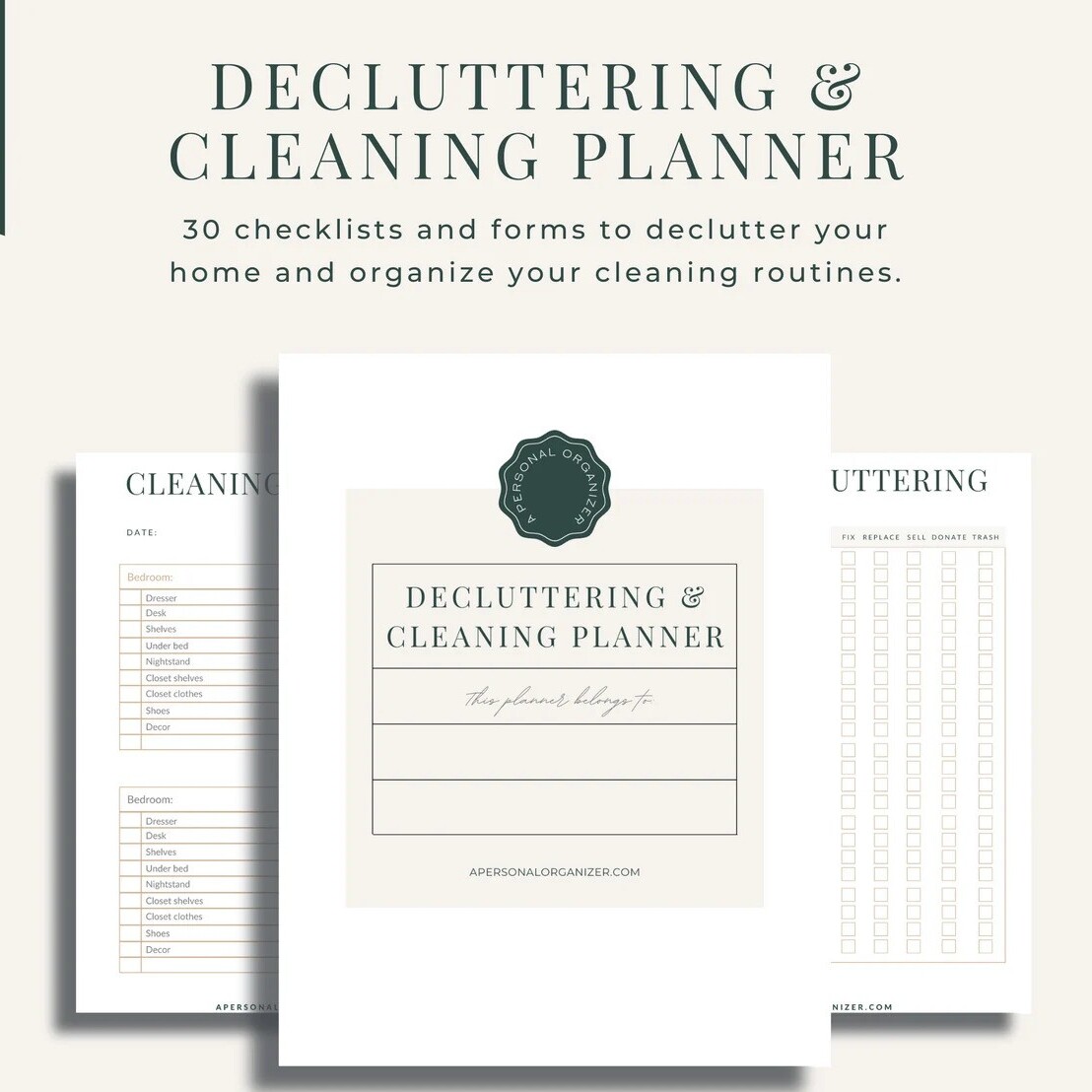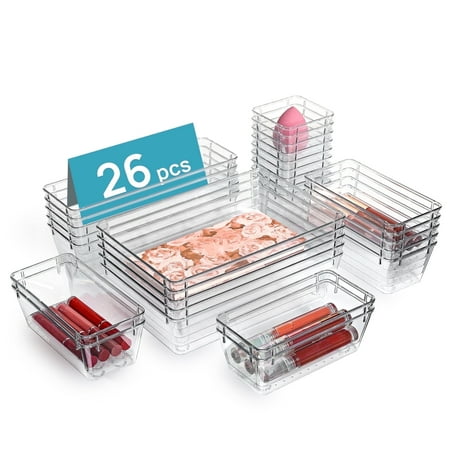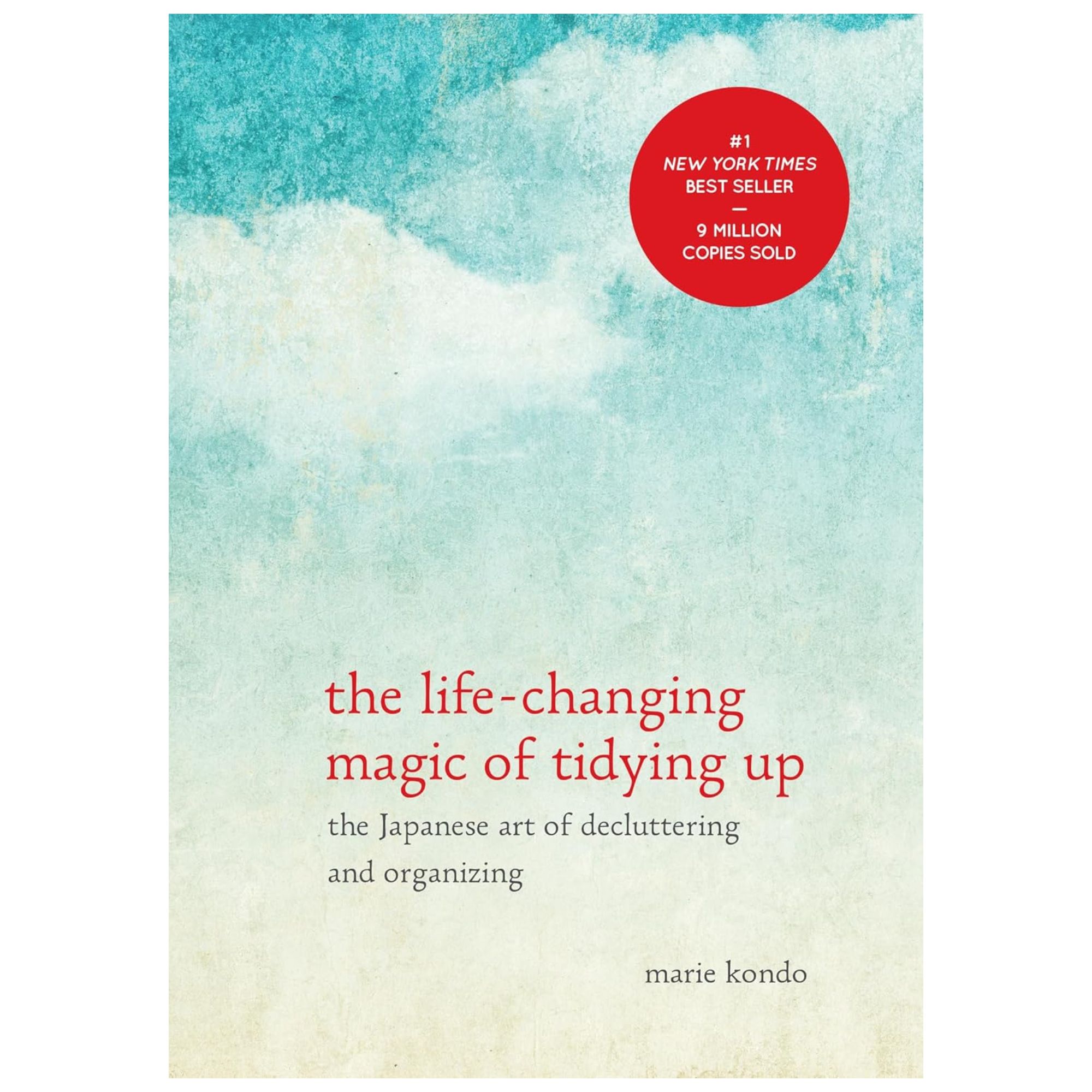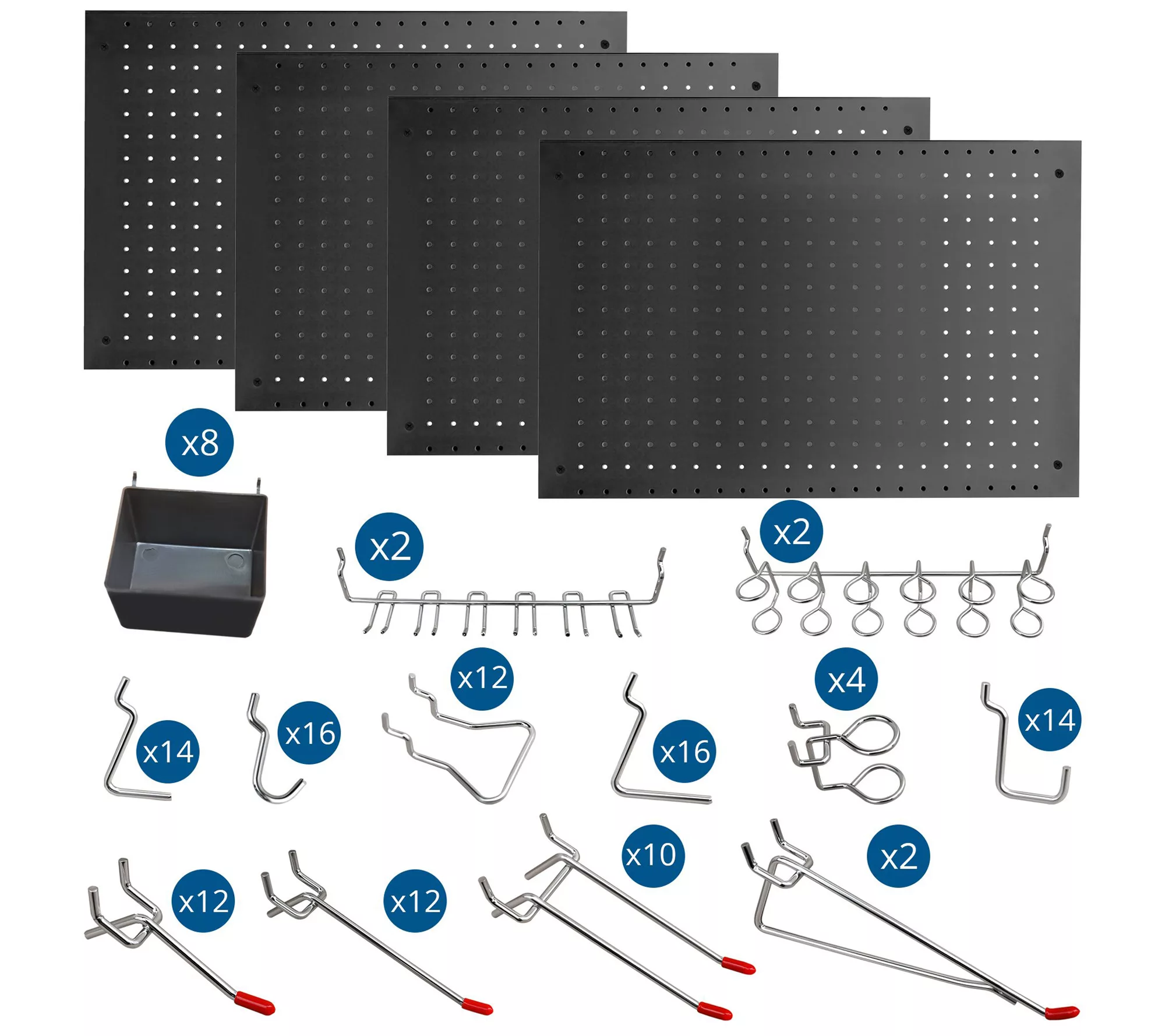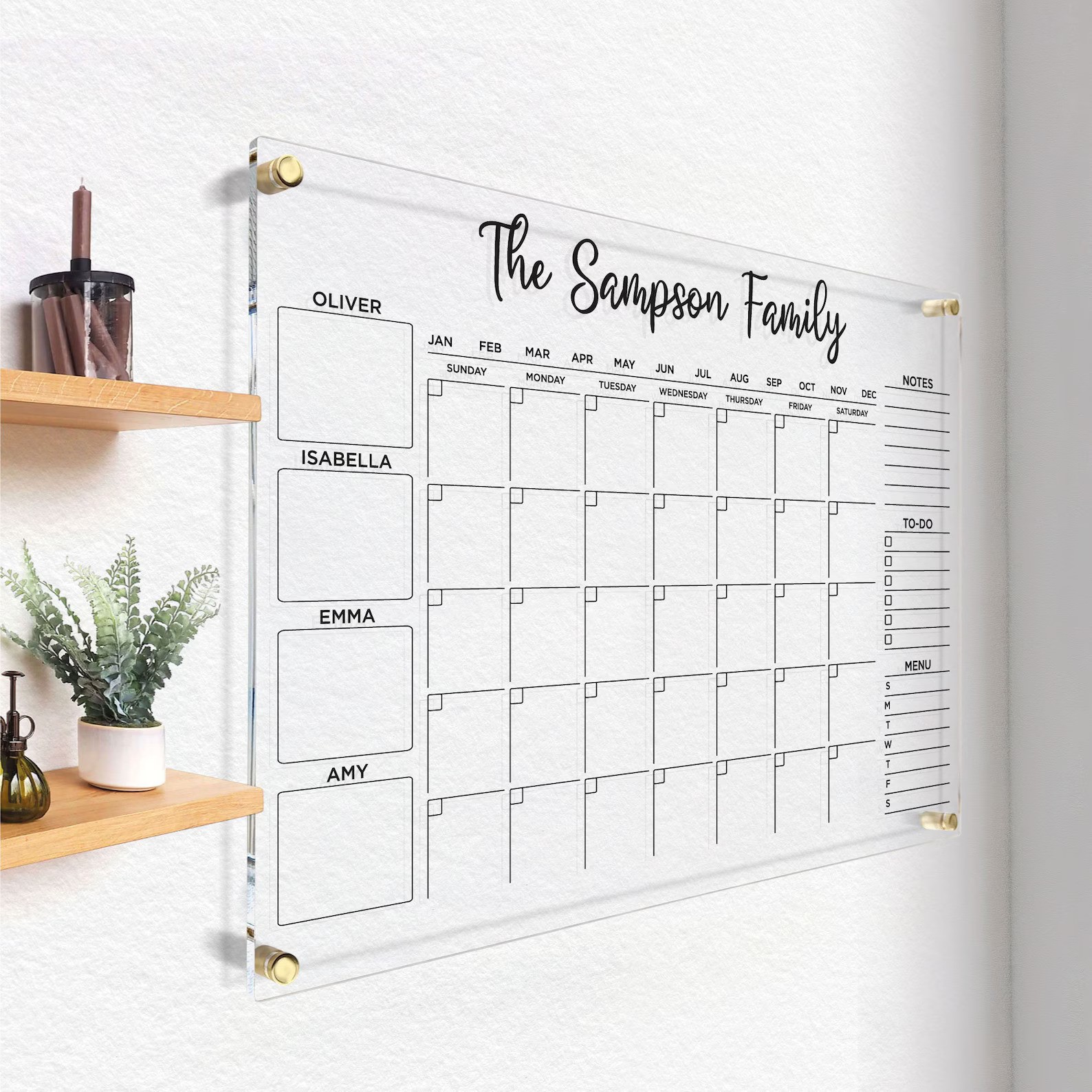35 expert home organizing ideas to easily and quickly help you turn chaos into calm
A stylish home is a well-organized one

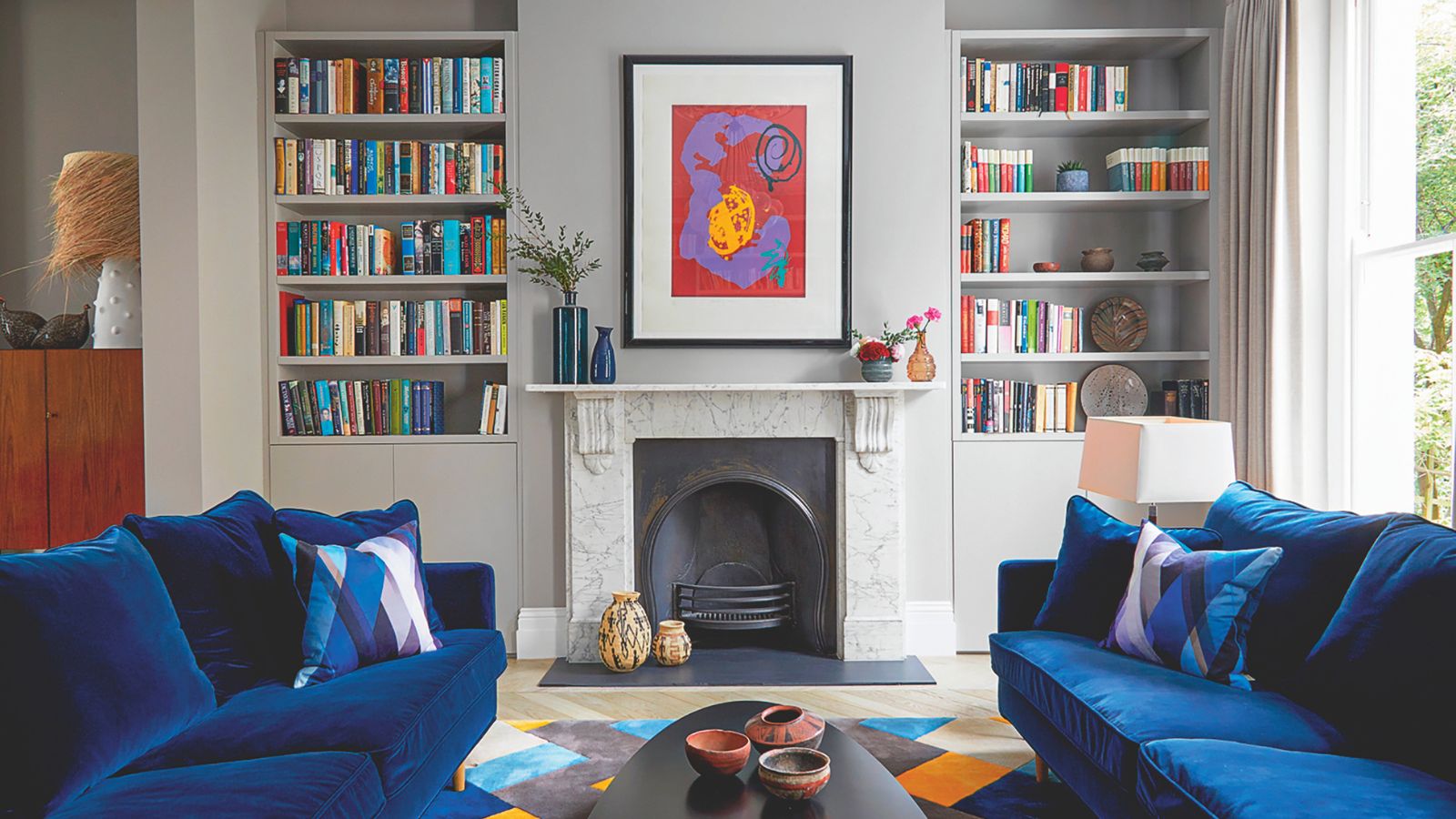
Design expertise in your inbox – from inspiring decorating ideas and beautiful celebrity homes to practical gardening advice and shopping round-ups.
You are now subscribed
Your newsletter sign-up was successful
Want to add more newsletters?

Twice a week
Homes&Gardens
The ultimate interior design resource from the world's leading experts - discover inspiring decorating ideas, color scheming know-how, garden inspiration and shopping expertise.

Once a week
In The Loop from Next In Design
Members of the Next in Design Circle will receive In the Loop, our weekly email filled with trade news, names to know and spotlight moments. Together we’re building a brighter design future.

Twice a week
Cucina
Whether you’re passionate about hosting exquisite dinners, experimenting with culinary trends, or perfecting your kitchen's design with timeless elegance and innovative functionality, this newsletter is here to inspire
Great home organizing ideas don't just make your home look neater; they make everyday life easier.
When clutter is under control, you spend less time moving or searching for things and more time actually enjoying your home.
So, to help keep your storage ideas orderly, try these 35 expert-approved home organizing ideas for every room.
35 easy home organizing ideas experts love
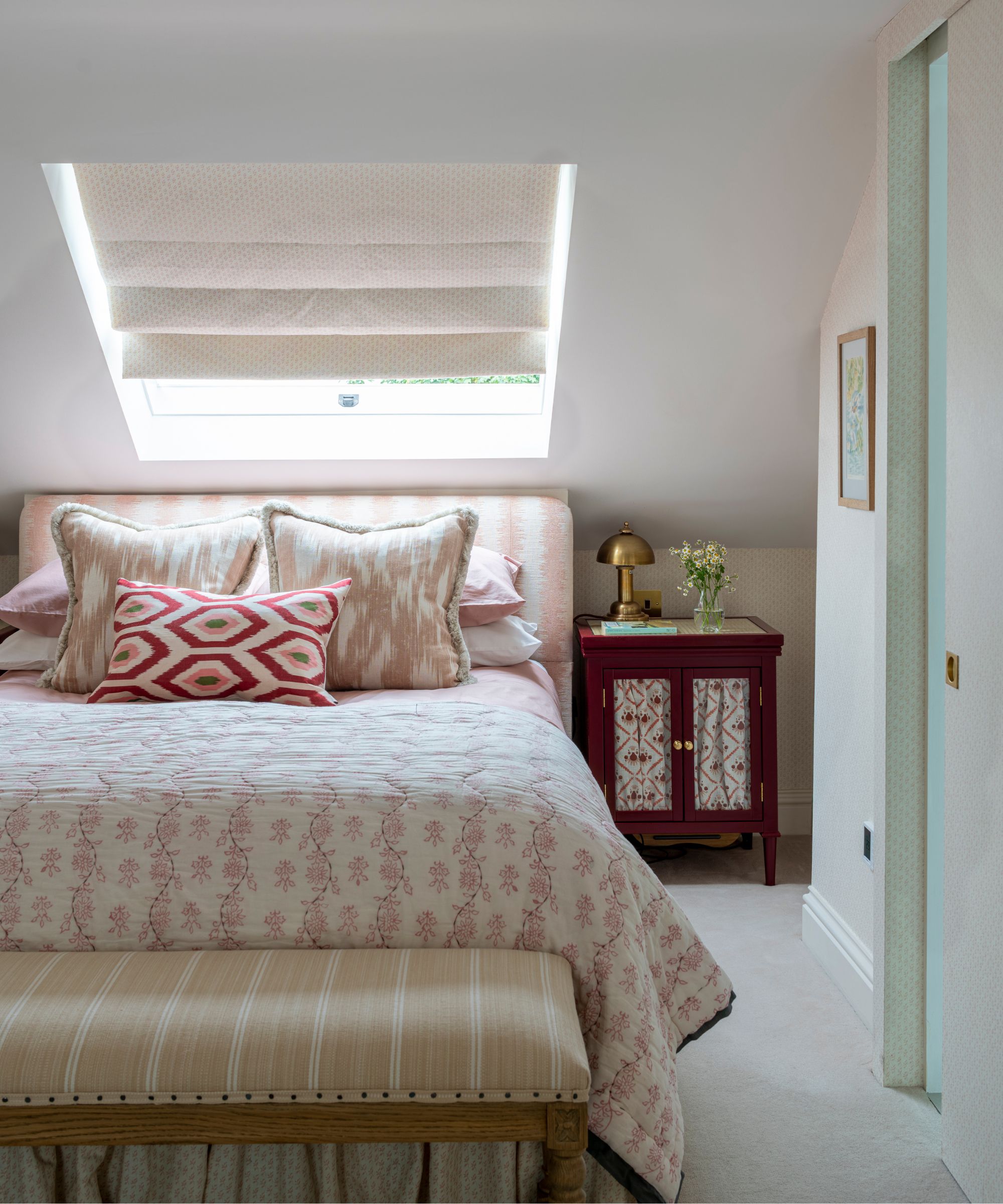
Good home organization can reduce stress and improve relaxation at home.
There is more to home organizing than making items easier to find. There are several physical and mental health benefits to having a weekly organizing schedule, too.
From boosting your confidence and alleviating stress, to making it easier to clean, boosting productivity, adding easy organizing systems to your home is a no-brainer.
1. Make a plan
Getting stuck straight to organizing your home might feel like a productive 'all or nothing' method, but instead of helping, this usually has the opposite effect, leaving you feeling completely overwhelmed.
Instead, think about what you want to achieve – and how you’re going to achieve it – so you can get yourself fully prepped ahead of time. A written to-do list of home organizing aims and needs means you can tick things off as you go, which is so satisfying.
Design expertise in your inbox – from inspiring decorating ideas and beautiful celebrity homes to practical gardening advice and shopping round-ups.
Start by considering the areas of your home you want to tackle and make a list in order of priority.
2. Declutter first
With your plan in place, start with some smart decluttering methods before you start home organizing. This means you are not trying to organize and find homes for items that you are later going to sell or donate anyway, or are unnecessarily housing costly duplicates of.
Plus, it can save you money on buying home organizing item that you don't actually need.
3. Focus on one room at a time
Organizing your entire house can feel daunting, particularly if it’s not something you’ve tackled in a while. Professional organizer Vicky Silverthorn of You Need a Vicky suggests taking your time and approaching it room-by-room. Even tiny tweaks to organize your home will make the task, and your volume of belongings and storage spaces, feel more manageable.
Vicky adds, 'Don’t overwhelm yourself by pulling all the contents out in one go – it’ll take far longer than expected. Start small, focus on one area, work on and complete it, then stop.'
It's worth noting that pulling everything out of a cabinet or storage space and facing all your belongings head-on (known as the aptly-named chaos method) can work for some people, or if you're decluttering as a family, for instance.
But crucially, you need to figure out which side of that line you fall on and act and move forward accordingly to avoid a freak-out, as that might deter you in the future from giving organizing your home another go.
4. Group like-with-like
Regardless of what or where you’re organizing, grouping items together using the co-worker, cousin organization method is an essential step toward implementing an efficient system.
For instance, keep your coffee mugs with your coffee maker and pods, or your cleaning cloths with your cleaning sprays and solutions.
Working in this way not only means you are less likely to lose items, but it also helps to optimize storage to avoid duplicates, too, saving you time, space, and money in the long run.
5. Create sustainable systems
Amy Berryhill, professional home organizer and owner of Spiffy Chicks, shares, 'One thing people with well-organized homes have in common, besides the obvious lack of clutter, is thoughtful organizing systems and routines. Plus, all of their belongings have a home.
'For example, there is a place for the children to hang their backpacks, a spot for keys and incoming mail, it’s easy to find what you need in the pantry, and finding a lid for the Tupperware doesn’t become an exercise in patience.
‘Disorganized households can learn from these systems by taking a little time to think through daily routines and to set up systems that work for everyone as a collective group.
'For example, put the keys on a small tray near the door so you don’t waste time looking for them. Ask yourself if it would help everyone to keep sunscreen in every bathroom, or if you prefer it to be in the garage so you can grab it on your way out the door?'
6. Designate drop zones
One reason a home may feel untidy is that items do not have a place to land when you first come into a house or finish a big task.
To combat this and organize your home more efficiently, designate drop zones where items can land quickly and be put away later.
This can take the form of a large woven basket, from Walmart, in the living room for blankets, throw pillows, and sweaters, or a key tray, also from Walmart, to organize an entryway and collect keys and mail.
7. Be smart with storage
Prioritizing access to items you use most is rule number one when deciding what goes where. To do this effectively, you’ll need to free up prime storage space. This means that when dealing with smaller spaces, such as organizing a small kitchen, you’ll have to think outside of the box – or the room, in this case.
Alexandra, co-founder and interior designer at Clairrow, shares, ‘I have a sideboard in the dining room, right next to my small kitchen, where I store my bulky crockpot. I don’t use it every day, and relocating it means I free up storage space.
For super smart organizing, delve into the king of tiny space living: Astronaut Chris Hadfield shared the out-of-this-world organizing tips that he used on the International Space Station that you can implement with ease at home.
8. Use the dead space under furniture
There are several underused spots in your home perfect for storage and organization. The most obvious being underneath your furniture.
From the ways to use space under cabinets and sideboards, to underbed storage, to using the space under sofas, adding in drawers or rolling underbed bags from Walmart, can help to keep home organization out of sight but still easily accessible.
9. Measure organizers before buying
Whether you’re organizing a small space or not, any expert will tell you, efficient organization means making the most of every inch available but retaining function and form.
From baskets and bins to risers and carousels, integrating the storage products professional organizers can't live without is a great way of utilizing space to its best potential.
Whether you’re dealing with awkward corner cabinets, organizing deep pantry shelves, or kitting out closets, take measurements before investing. Ideally, you want a snug fit so you’re not left with any dead space.
10. Divide up storage
Whatever they hold, drawers and cabinets tend to dissolve into disordered chaos if not kept in check. Dividers will quickly become your best friend.
From regular drawer dividers from The Container Store to baskets and bins, there is something to better organize every unit and space in your home. Don't be afraid to pick up specialized storage, either, especially when organizing a kitchen.
For example, Cara Palmer, founder of OrganizeEveryRoom, says, 'Water Bottles are awkward because their varying heights and widths make uniform storage difficult. Their cylindrical shape also means they easily topple over. They also tend to multiply quickly in households.' She recommends the Medium Plastic Storage Bin with Handles, available at The Container Store, to keep them in check.
Similarly, the iDesign Linus Large Lid Organizer available at The Container Store can help to keep container lids neat in cabinets, whilst the Joseph Joseph DrySmart bottle rack, available at Amazon, means an easy space to both dry and store bottles and travel cups.
11. Bins, bins, bins
The best storage baskets and bins can make any home look instantly more organized.
Meaghan Kessman, expert home organizer, says, ‘These storage pieces not only keep clutter out of sight but also enhance the overall aesthetic of the home.
'Disorganized homes can greatly benefit from investing in versatile and attractive storage options that blend seamlessly with their décor. This makes it so much easier to maintain order and adds a cohesive look to the space.’

Measuring 8x10x11 inches, these handwoven water hyacinth baskets are ideal for drop zones, shelves, and cabinets.
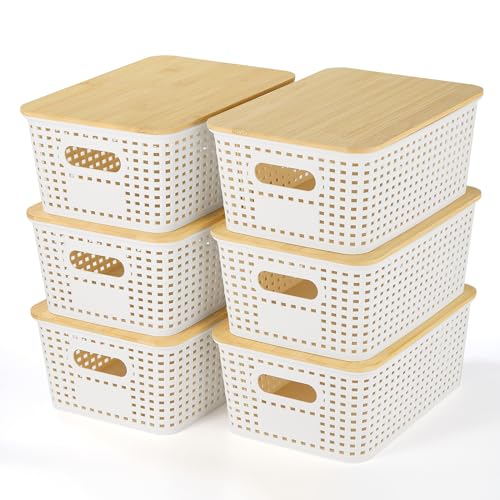
These stacking bins are ideal for items that need ventilation, such as food packets or bathroom products, helping to keep them neat without the risk of mold or odors.
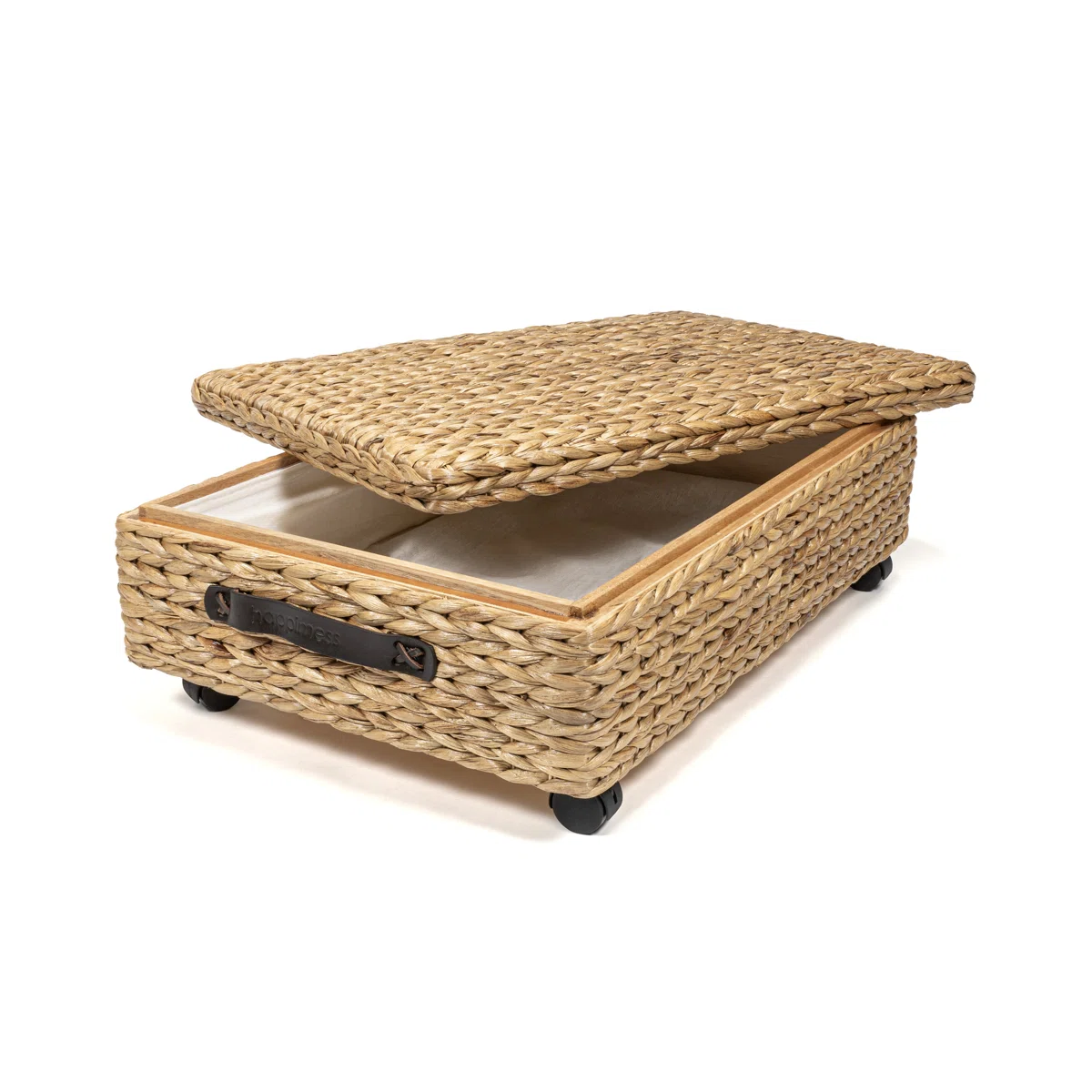
Store away your extra blankets or clothing with this slim wheeling handwoven basket. It rolls in and out of shallow dead spaces such as under your bed or sofa with ease.
12. Keep bins clear
On the topic of baskets and bins, any bins you keep inside closed storage could be transparent.
Opting for clear acrylic storage containers, such as clear stacking bins from Walmart, or these clear acrylic drawers from QVC, means you can see everything at a glance, so nothing is lost or forgotten about without sacrificing tidy storage.
13. Label efficiently
Labeling your storage is a home organizing golden rule there to help prevent duplicates, and make putting items back in their homes easier
You can keep things simple by using sticky labels from Walmart, and handwriting hints, or by investing in a label maker such as the DYMO label maker from Walmart for uniformity.
Prevent labeling from becoming a performative organizing task by reserving it for more intricate storage areas to create clarity, rather than setting strict boundaries for very niche containers.
You don't need to label a clear jar of hair ties 'hair ties', for example, but an opaque container of dog food would benefit from a written hint.
Wayfair's chalkboard bins are perfect for keeping your home organization up to date, and being able to adapt your system whenever you need, for instance, switching a handy basket from summer snacks to seasonal baking ingredients.
14. Keep things uniform
One common storage mistake making home organizing harder is to use mismatched organizers, systems, and bins all over the home.
Keeping things uniform helps to create order and allows you to set more secure rules for putting items back. This is especially useful when you also delegate tasks to family members or get children involved with chores, as it reduces confusion.
Incorporating biophilic decluttering into your systems will make it more likely to maintain those spaces, move forward simply because they look so gorgeous, and that in itself can be very motivating.
15. Invest in bespoke
If you really want your home storage to work for you, there is little better than commissioning bespoke joinery.
You could even take it one step further with niche inserts specifically designed to suit your organizational needs, whatever they may be. Fashionistas might opt for built-in cubbies to store handbags and shoes, while for keen cooks, Tom Howley, design director at Tom Howley, recommends a bespoke option for organizing herbs and spices perfectly.
‘Herbs and spices are one of the trickiest items to keep organized in the kitchen. A bespoke drawer inlay allows you to lay jars with their labels easily read at a glance, so you can clearly see what you have. Not only is this more efficient when cooking, but storing them in a cool, dark drawer can extend the life and flavor of your spices.'
16. Think like a minimalist
You don't have to commit to being a minimalist to think like a minimalist.
A minimalist mindset involves questioning the existence of belongings, both existing and future purchases. It teaches us to own only things that serve a purpose or enhance our lives, Much like Marie Kondo's organizing philosophy of only keeping things that bring joy.
Embracing a one-in, one-out approach will help stop the clutter from building up, for example. Taking a slower, more purposeful attitude to consumerism will have obvious environmental benefits, but it doesn’t mean getting rid of things you love.
Try to think of it as getting rid of things you don’t need, to make more room for the things you do. It's also easier when you apply the 'Didn't Know' method to your organizing: If you didn't know, or remember, that you had an item, it's OK to let it go. Either sell or donate it.
17. Keep workzones clear
Keeping surfaces clear of clutter is a prime organizational trick in any room. As well as looking smarter, it makes for a more functional space and an easier clean-down afterward.
This is especially key in a well-organized kitchen.
While there are several things you can do daily to keep kitchen counters clear, you will be fighting yourself if you don't establish some organizing systems to keep clutter at bay.
Keep appliances to a minimum; just one or two you use daily – stow the rest away. Group smaller like items together on trays or in containers to keep them as one – tea and coffee-making essentials, cooking oils, and seasonings, for example.
Make wall space work hard with shelving, hooks, rails, and magnetic strips to hold utensils and knives.
Kate Pawlowski, professional organizer and co-founder of Done & Done Home, adds, ‘To ensure countertops remain neat, tidy and well-organized, we urge our clients to declutter at least once a day.'
18. Minimize visual clutter
Objects left out in the open can often translate as stressful visual clutter. Even too many beautiful things can become messy-looking, and this in itself is said by psychologists to be a constant emotional aggravator at home, spiking cortisol levels and reminding your brain that there is a to-do list looming where the mess is. It's one of the reasons minimalism can reset your brain.
The easiest way to keep an open space tidy is by organizing your home in a way that hides everyday essentials behind cabinets or inside baskets. Built-in cabinets, sideboards, and chests will discreetly hold items that could otherwise become visual clutter in your living room, bedroom, or other vital spaces designed for relaxation if left out in the open.
However, don’t fall into the trap of thinking that because the storage space is closed, items can be tossed in haphazardly. Use bins and drawer organizers, available at Wayfair, to organize like-items and label them so everyone in your family can find what they need.
19. Keep things off the floor
Professional organizer Shaniece Jones' clear floor policy should be adopted in every home to help improve organization.
As the name suggests, the policy states that the floor is not a storage zone, and therefore has no place in good home organization.
Breaking bad home habits and building new ones, such as putting shoes on racks and picking up items left on stairs every time you pass them, will drastically improve your organization while making your home look tidier.
20. Minimize footprints
Home organization does not have to take up precious storage space. After all, you want to avoid 'paying rent' for your stuff.
To do this, minimize your organizational footprint by investing in space savers, such as vacuum storage bags, from Walmart.
Juliette Thomas, founder and director of Juliettes Interiors, says, 'Vacuum packing clothes when the seasons change is a great way to save on space as suctioning the air out will compact clothing down, allowing it to be stacked neatly away or even stored in the attic until they’re required.’
21. Organize clothes monthly
We should never stop organizing clothes.
From the clothes we buy and need to house to doing laundry and putting it all away, it is a category in constant flux. As such, we should always look to declutter a closet and stay on top of garments before they become overwhelming.
Rather than cram in everything you own, reserve your closet for items you wear or use regularly. Then, organize clothing by category to make finding the specific piece you need far easier for a more organized morning routine. When your closet is full, organize your dresser to store anything that won't crease easily, and file-fold clothes where you can so they’re stacked vertically in drawers rather than in flat piles.
If you’re organizing a small closet, the same rules apply, but you might want to consider adapting your closet storage a little to make the most of the space you’ve got.
Jenni Greenwood of Greenwood Interior Design, suggests, ‘Take a close look at your closet and use the features to your advantage; if you have a lot of shelving, look at using boxes for specific clothing or, if the wardrobes are very tall, look at using multiple hanging rods.'
22. File fold for visibility
From organizing a dresser to organizing a linen closet, file folding is one of the best techniques for keeping fabrics neat while keeping everything visible.
Courtney Cummings, professional organizer and owner of The Stylish Organizer, says this method works especially well for bulkier items like pajamas, sweatshirts, sweaters, and loungewear.
'Then, turn any unruly drawer into an Instagram-worthy space with adjustable drawer dividers from Amazon to keep your neatly folded clothes in place.
'Be sure to measure the depth of your drawer to ensure the proper fit for your new drawer dividers.'
23. Prioritize function
While a pretty home organization is nice to look at, it should always be functional first. After all, what good are a load of bins and baskets if you still can't find anything in them? At that point, it is just expensive chaos.
To overcome this, especially in practical spaces such as organizing a pantry or a bathroom closet, Brenda Scott of Tidy My Space recommends implementing the FIFO method.
'Think “first in, first out” – when you purchase an item,' Brenda says. 'It goes to the back of the grouping so the item with the nearest expiration date always remains at the front.'
24. Make the most of height
Going vertical when organizing your home is an easy way to reclaim space in a room. Make your walls work overtime; they’ve got plenty of storage potential. While open shelving is the obvious go-to, rails and hooks can make for a practical and stylish display, as can discreet over-the-door organizers, available at Amazon.
Al Bruce, Founder of Olive & Barr, adds, ‘Wall-mounted hooks are one of the most creative solutions. They can turn your apron collection into textured wall art, your chopping boards into wooden focal points, and your backsplash into an untapped storage spot, all while freeing up other space, too.'
When it comes to corralling smaller items, stackable storage is always a good bet. They allow you to store more on any surface, whether in a bathroom cabinet, a chest of drawers, or the fridge.
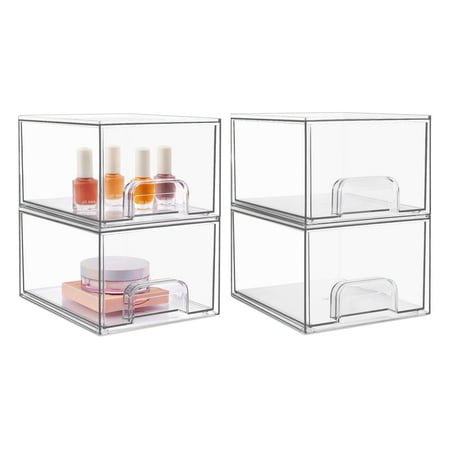
Make better use of vertical storage to save space on shelves by using stacking drawers in pantries to store snacks and packet goods.
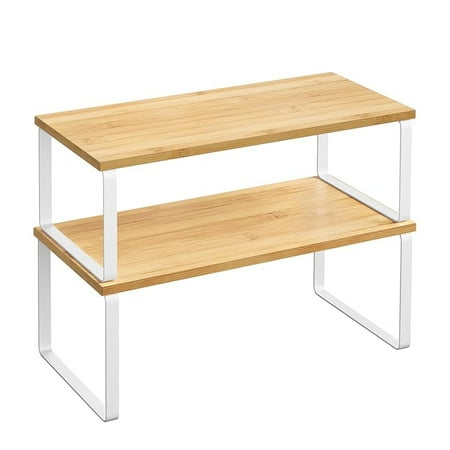
This two-piece set provides convenient cabinet and counter organization.
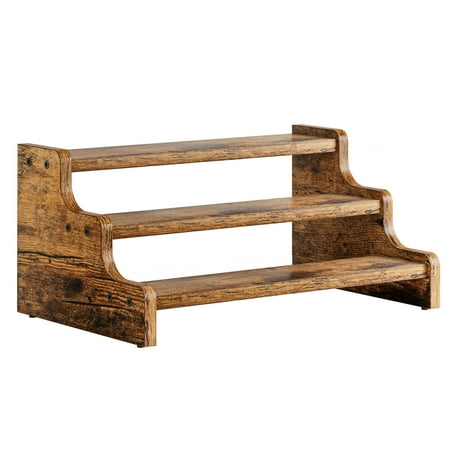
This versatile stepped rack and organizer provides ample storage space for spice bottles, jars, seasonings, baking supplies, and even bathroom items. Raising the back row of items in any cabinet means less waste and duplication.
25. Use doors
A well-organized home uses every inch of space, especially hidden spaces that guests cannot see.
Consider using the backs of doors to organize everything from accessories to shoes to pantry goods.
The Elfa Utility Over the Door Rack, from The Container Store, is ideal for this, as it is fully customizable with pegboards, hooks, and baskets, so it can be used all over the home without a hitch.
26. Use multifunctional furniture
You may feel they’re useful for hiding clutter, but bulky cabinets, sideboards, dressers, and wardrobes encourage hoarding and can quickly undo all your good work – out of sight, out of mind is not conducive to effective organization!
To maximize available space and practice good organizational habits, choose furniture that has multiple uses instead. A storage ottoman from Wayfair, or a lifting ottoman bed is a great example; experts highly recommend the investment.
Phillipa MacDermott at Feather & Black, says, ‘Ottomans provide the most impressive storage, with the entire mattress base lifting via an easy-to-operate hinge mechanism – perfect for those seeking extra space to store spare linens and bulky items like winter duvets or ski wear.'
Alternatively, think about creating multifunctional storage pieces with your existing furniture. For example, a small bookcase as a nightstand or a solid wood storage trunk, also from Wayfair, that doubles up as a seat in the hallway to take off your shoes.
27. Avoid having a junk drawer
Home organization goes out of the window when you have a designated space where you allow yourself to throw junk in and not address it until you are forced to declutter when you feel overwhelmed.
'Conquering the dreaded junk drawer and removing the option to throw random, uncategorized items together forces you to think about what you keep in your home,' says Punteha van Terheyden, Head of Solved for Homes & Gardens.
'You can still have a drawer for items that are otherwise hard to sort, but ensure they are all practical and used regularly, and kept neat with an expanding drawer organizer, from QVC.'
28. Minimize piles
Lauren Saltman, professional home organizer and owner of Living. Simplified shares, 'Another item professional organizers always notice is piles – piles of clothing that is ready for the laundry or ready to be folded. Piles of mail on the countertops. Piles of miscellaneous items on the floor or the couch.
'What this tells me is that systems need to be put in place to deal with the items. Well-maintained, organized homes never have these.
‘They do this by creating drop zones around the home. For example, creating a mail drop zone so that whoever brings in the mail knows exactly where to put the mail.
'Similarly, there are laundry baskets [such as the pre-sorted Joseph Joseph Tota Trio Laundry Hamper, from Wayfair] in all key areas to stop piles of dirty laundry, and they set up routines for clothes to go away as soon as they are dry.'
29. Upcycle and recycle for affordable organization
One of the most effective ways to sustainably organize your home is by upcycling leftover decorating materials and items.
'Give an old bookshelf a new lease on life with a fresh coat of paint or repurpose an antique dresser into a charming storage unit,' recommends Robin Aebischer, interior designer and co-founder of BUYnBLUE. 'Not only does this add a touch of elegance to your home, but it also minimizes the demand for new furniture production.
'Get creative by repurposing old crates, vintage suitcases, or wooden pallets into unique and stylish storage units. Or reimagine a ladder as a quirky bookshelf or a convenient place to hang towels. This eco decor not only adds character to your space but also contributes to the reduction of waste.'
30. Keep toys accessible
If you have little ones, you must organize a home with kids in mind so that they can access their belongings and get involved with the cleanup.
When it comes to organizing toys, for example, professional organizer Vicky Silverthorn says, ‘If it’s too complicated and detailed, or has too many steps, kids (and adults alike) won’t stick to it.'
With that in mind, consider leaving an empty basket in each room of the house that your child can throw toys into throughout the day and instill a habit of returning them to their homes before bed.
This part doesn’t have to be a chore either – label open baskets, bins, and boxes with simple categories so you (or your little ones) can throw it all back in with ease.
Head of Solved, Punteha van Terheyden, is a busy mom of one and she has a small home. She adds, 'My daughter is nine, and very much a "living room kid", and always plays or does crafts in our shared living spaces.
'That's why we've used the space under our sofas in the living room to house her crafts and activities, organized by category, in clear lidded plastic containers from Amazon. She gets them out one at a time, uses what she needs, such as Lego, and it's super easy to tidy and keep organized.'
Excluding children from straightforward and age-appropriate tasks like this is something people with tidy homes never do.
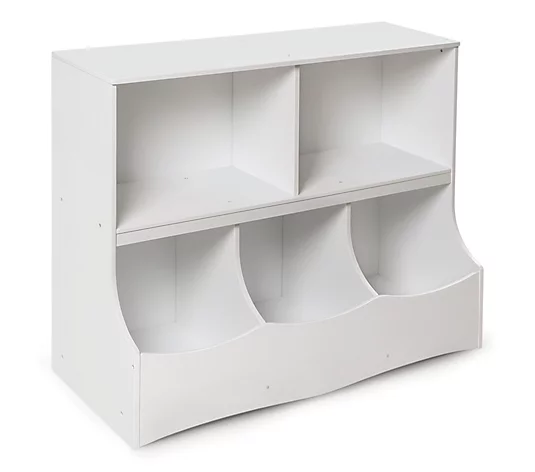
These open toy storage shelves keep toys on your kids' level, encouraging creative play while making tidying up afterwards easier. Just make sure to anchor it to the wall for safety.
31. Make it mobile
Caroline Roberts, professional home organizer and owner of This Simplified Island, explains that good home organization isn't just limited to your cabinets and closets.
Organization can be mobile to help suit changing routines and open-plan living, so accessories from the different activities can be put away rather than let them pile up to become clutter.
Caroline says, 'I love creating different bins or rolling carts, available at Wayfair, with items based on various activities. To do this yourself, make a quick list of the different ways that your space is used.
'Spend the next week observing all the projects, tasks, and items in and out of the area. Then create bins based on those activities that you can quickly move in and out of storage as your day evolves.
'For example, my dining table is also the homework spot for my kids, so I keep homework supplies in a cabinet nearby. Paper, pens, and markers are in a caddy, at Target in the cabinet, so we have everything we need in just a few steps. It makes transitioning from homework to dinner simple, quick, and clutter-free.'
This is also known as the desire path method: Placing storage exactly where mess accumulates, or is needed for better function and home organization.
32. Don't forget digital
Digital decluttering and organizing is just as important as physical home organization, helping to keep your important documents and photos safe and easy to access.
It is worth setting some time aside every month to address digital documents and emails, and to back up any mobile devices into neat folders on your desktop or a portable hard drive from Best Buy.
33. Digitize paper organization
Organizing important documents can be stress-inducing, especially when organizing them for loved ones, such as your parents. You mustn't lose them, after all.
To protect key paperwork from damage and make it easier to sort through, consider digitizing your paperwork and organizing it into digital folders instead.
The Epson WorkForce Mobile Document Scanner, from Best Buy, will ensure high-fidelity scans for optimal storage. Alternatively, keep important originals in a highly-rated water- and fire-proof bag, available from Amazon.
34. Get the family involved
Encouraging your family to streamline and organize your home can feel like an uphill battle, but it is a must if you want to keep your house orderly.
From splitting chores with a partner to working out the right age for children to start chores, everyone can get involved in putting items away into their designated homes to better maintain good organization. You can even make it a fun bonding activity.
35. Use opening and closing shifts
One thing super organized people do every day is work through opening shifts and closing shift routines to maintain their home organization.
These mindset shifts to prevent clutter give you a designated time to go around and return loose items to their homes, returning your home to 'ground zero' so nothing builds up into an overwhelming mess.
They don't have to take ages, either. Just five minutes a piece can be enough to prevent stressful buildup.
Reorganizing a home
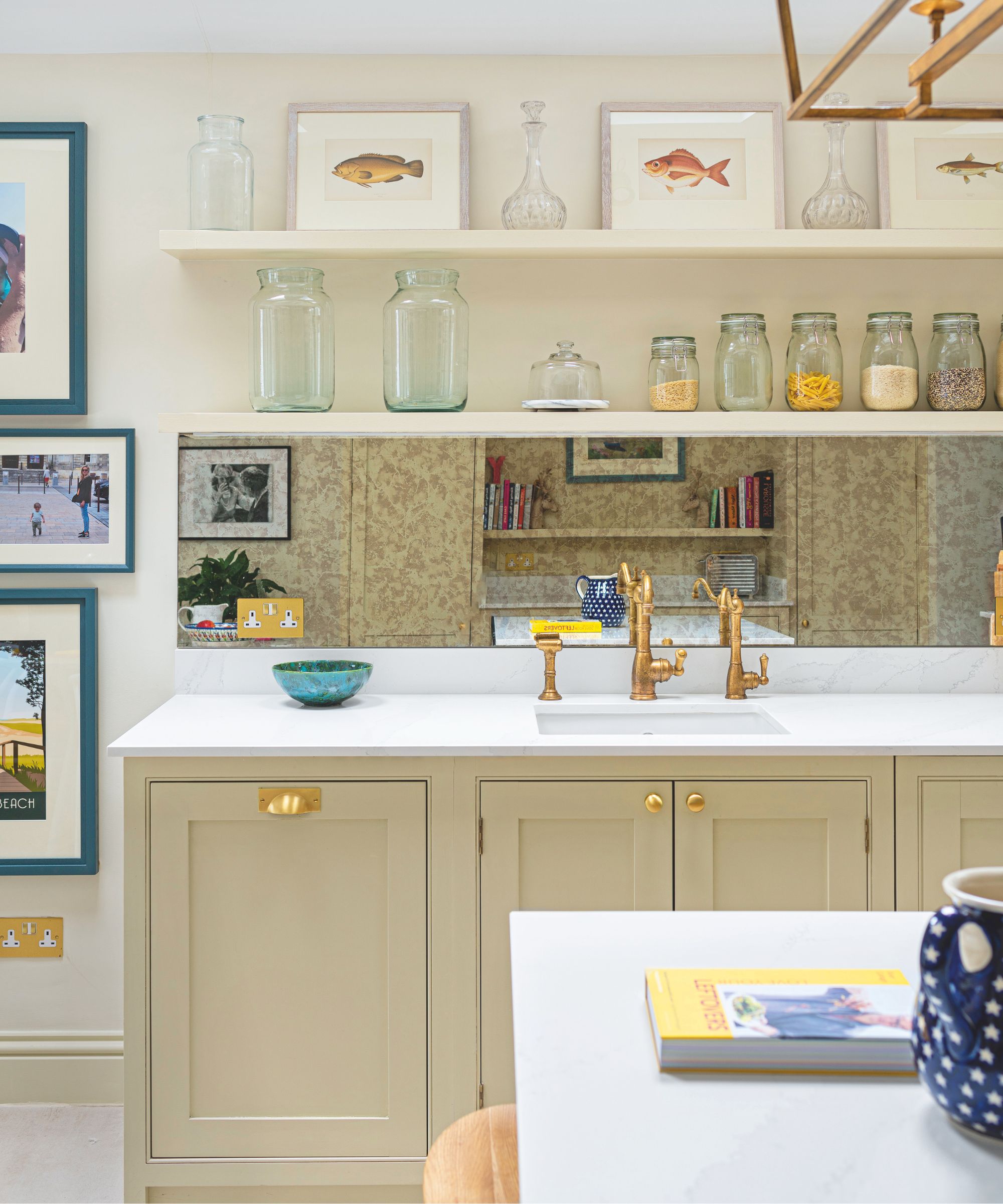
Reorganizing your space on occasion can help to keep you older systems streamlined and tweaked for better functionality as hobbies and habits change over time.
Just because you have organized something once, doesn't mean you have to stick with that system, especially if it does not work for you anymore or your circumstances change.
When reorganizing your home, experts say there are five important things to pay close attention to:
- What worked: As Di Ter Avest, professional organizer and founder of Diisorganized, says, reorganizing doesn't mean starting from scratch. 'If something worked for a long time, figure out why it worked and how you can recreate that success in other areas.'
- What didn't work: In that same vein, don't forget about the things that didn't work for you and your space, no matter how many times you tried. This is a simple yet effective way to swerve any home organizing mistakes, says Di.
- Your lifestyle: 'Life changes – kids grow, work moves to the home office, and self-care becomes more of a priority,' says Di. 'Reorganizing your home should reflect those changes.'
- Daily conflicts: 'If every morning starts with searching for socks or paperwork, that's a clue,' advises Di. 'Reorganizing should solve those daily headaches, not just make things look good on a shelf. Little shifts – like creating a launch zone or a paperwork system – can make a big impact.'
- What brings peace: 'Whether it's a clear kitchen counter or a tidy drawer where everything has a place, notice what brings peace and aim to recreate that throughout your home,' Di recommends.
Reasons you cannot stay organized
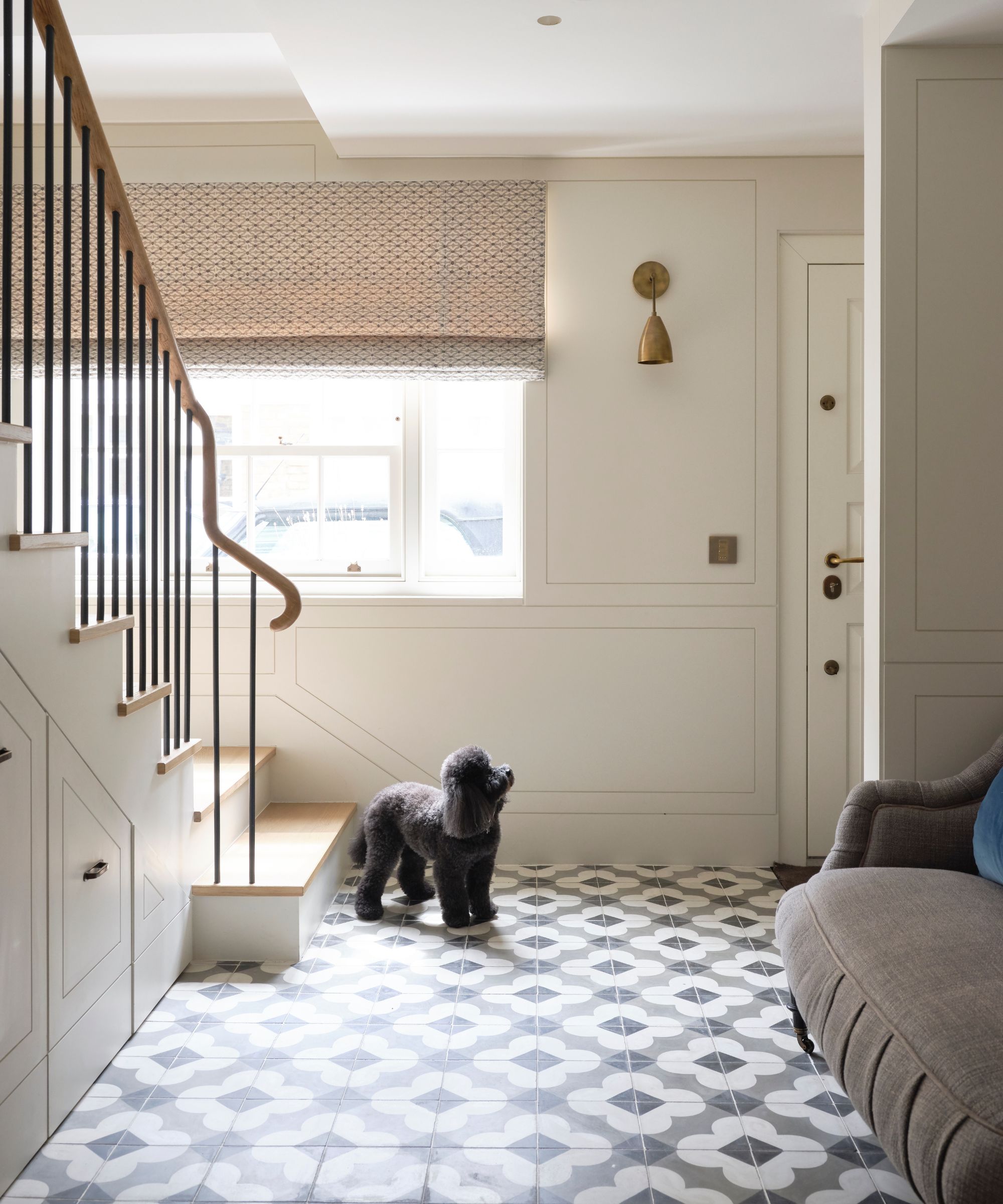
If a system isn't working, don't be afraid to try again.
There are several reasons why you might struggle to keep your home organized, from following organizing trends too closely to pushing too hard for perfection:
- You're over-organizing: Over-organizing can be just as bad as under-organizing, often over-complicating your home and decreasing efficiency. If it takes too much energy to maintain, you won't maintain it!
- You're chasing aesthetics: Your organizing systems need to be functional, not pretty. Star Hansen, professional organizer, suggests, 'Make a list of everything that works well and doesn’t work well for you when it comes to getting organized. Those two lists will become the structure for successful organizing systems.' '
- You don't continue decluttering: Your storage and home organization will quickly overflow if you do not stay on top of the number of items in your space. Try to stop clutter before it starts by shopping smart or using the one-in-one-out rule.
- Neurodivergency: Not everyone's minds work the same way – this is especially true for those of us who have a neurodivergency such as ADHD, a common driver of chronic disorganization. In this case, a more personalized approach to organizing that fits your routines and preferences with leeway is required.
Signs your home is organized enough
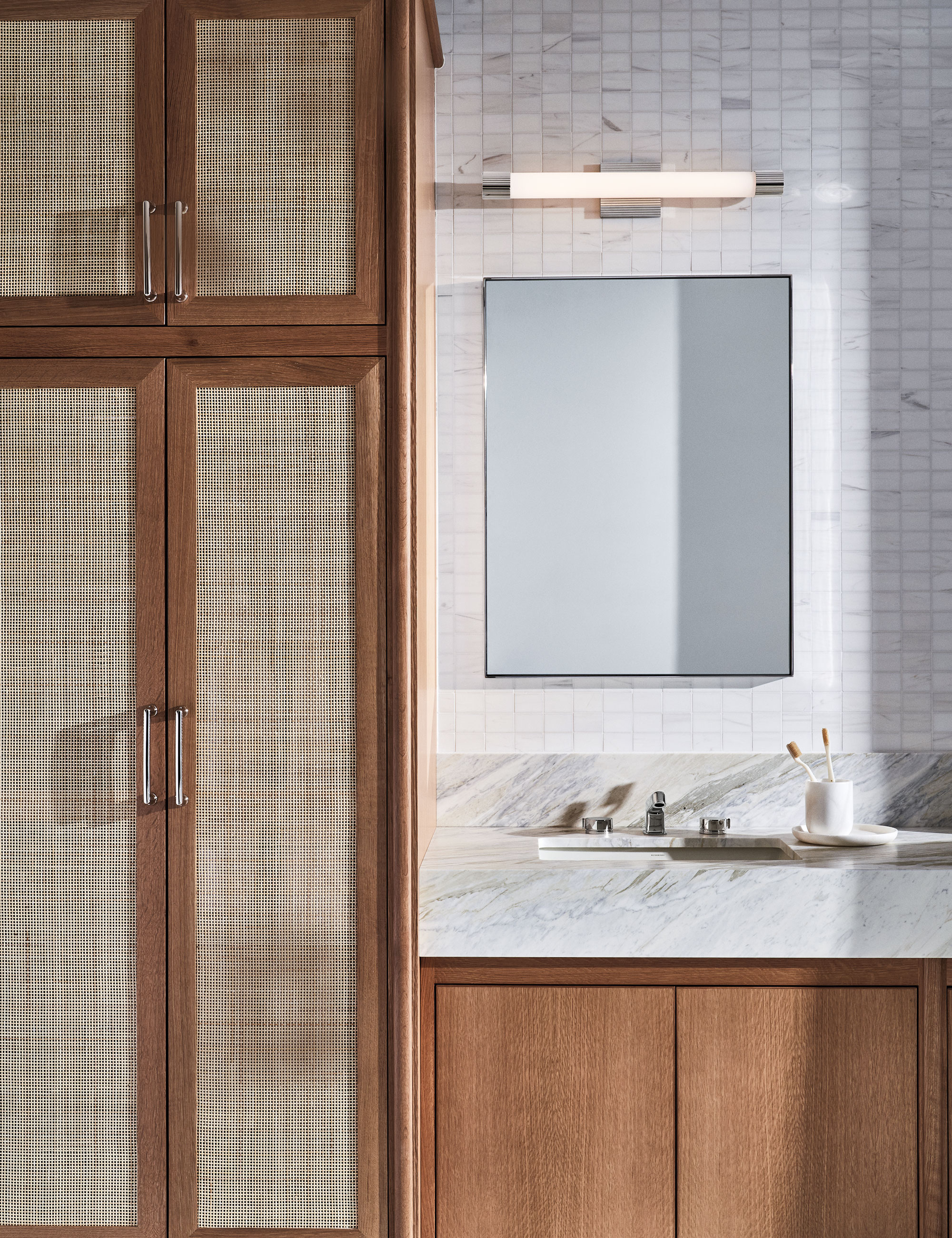
There is such a thing as too far when it comes to organization.
You can have too much of a good thing, organization included.
Sara Genrich, Certified Professional Organizer, warns, ‘When organizing a home for health and well-being becomes rigid and inflexible, it can create stress and difficulty adapting to changes. It’s essential to find a balance between organization and flexibility. Remember, the goal of home organization is to improve your life, not to create additional stress.’
So, if your organizational systems are more of a source of perfectionism and stress than a solution, it is likely a sign that you’re taking organization too far in your home.
Similarly, if you find your home operates smoothly the majority of the time, you rarely lose anything, you don't often end up with unexpected duplicates, and you do not feel visually overwhelmed by your space, you can likely take a step back and focus on maintenance, such as tidying, and not clearing it out.
FAQs
How do I organize my house with too much stuff?
The most obvious answer to organizing a house with too much stuff is to get rid of anything you deem 'too much', such as trash, items you no longer use, or duplicates.
Once you have decluttered, you can start adding storage units and organizing products to contain the leftovers.
Still stuck for space? Check out our ultimate decluttering guide for every room to help pare back your stuff and reclaim lost storage space for easier home organization.

Chiana is Homes & Gardens’ kitchen appliances editor. With a lifelong passion for cooking and baking, she grew up experimenting in the kitchen every weekend with her baking-extraordinaire Mom, and has developed a great understanding of how tools and appliances can make or break your ideal relaxing kitchen routine.
